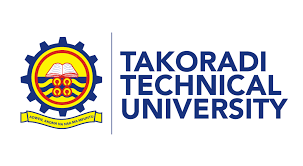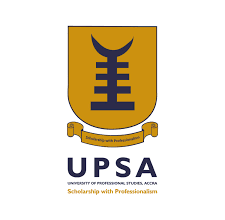Our article on GIJ courses and fees will explore all there is to know about the foremost Journalism school in Ghana now called the University of Media, Arts, and Communication (UniMAC).
The school has been training journalists since it was officially opened on Monday, 16th October 1959, by the then Minister of Information and Broadcasting, Mr. Kofi Baako. And we cannot stop to recognize the roles they have been playing in maintaining the polity.
But why do we even need journalists? I guess you could say we need professional journalists with integrity to avoid the dangers of a single story.
But more importantly, because we care about the truth too much to leave it in the hands of unscrupulous men and women.
And of course, we need a system of checks and balances that can only be effectively run by people not in the corridors of power.
We could go on and on about why we need journalists, but at the end of the day we can agree that they have done more good than harm, especially when they are not busy being tools in the hands of politicians and big corporations.
Table of contents
- What is journalism?
- What does GIJ stand for?
- All about GIJ (UniMAC)
- Faculties and schools
- What are the programs offered at GIJ?
- GIJ Academic courses
- GIJ Short courses
- How to apply GIJ
- What are the cut-off points and admission requirements for GIJ?
- SSSCE
- Requirements for graduate students
- Registration
- What is the GIJ forms Deadline?
- How Much Is the GIJ Tuition Fee?
- What is the Ghana Journalists Association?
- FAQs
- Conclusion
- References
- Read Also
What is journalism?
Journalism is the collection, preparation, and distribution of news and related commentary and feature materials through print and electronic media.
It be could newspapers, magazines, books, blogs, webcasts, podcasts, social networking and social media sites, and e-mail as well as through radio, motion pictures, and television.
Read Also: Accra Technical University Courses and Fees | 2024/2025
What does GIJ stand for?
It stands for the Ghana Institute of Journalism. The institution is now known as the University of Media Arts and Communication (UniMAC) GIJ.
All about GIJ (UniMAC)
On Monday, October 16, 1959, the Ghana Institute of Journalism (UNIMAC-GIJ) was formally inaugurated by Mr. Kofi Baako, the Minister of Information and Broadcasting at the time.
The Kwame Nkrumah administration founded the school to teach journalists in the hopes of creating a cadre of patriotic journalists who would actively participate in the liberation of the African continent.
Mr. Richard McMillan, who retired as Director of British Information Services in Ghana, served as the school’s first principal and journalism tutor when it was still a department of the Accra Technical Institute (now Accra Technical University). The Ghana Press Club was housed on the current site of the institution until 1966.
The following legislative instruments are responsible for the Institute’s current tertiary status, which has been achieved through substantial adjustments throughout the years.
University Of Media, Arts and Communication
The University of Media, Arts, and Communication (UniMAC) was established by the University of Media, Arts and Communication Act, Act 1059 of 2020.
This merged the Ghana Institute of Journalism, established in 1959, the National Film and Television Institute, established in 1978, and the Ghana Institute of Languages, established in 1961, into one public university.
The law was a brave attempt to satisfy the member institutes’ long-standing demand to combine into a single, official university and enhance their deeply entwined academic and student services.
The Act created the University as a holding university for independent institutes, whose primary responsibilities are to offer higher education, research, and development of relationships with individuals outside the University through the following Institutes: Education, Arts, and Communication.
Read Also: Official List of UENR Courses and Requirements | Fees and Cut off Points
Faculties and schools
GIJ (UniMAC) has the following faculties and schools offering different programs:
- Faculty of Integrated Communication Sciences
- Faculty of Journalism & Media Studies
- Faculty of Public Relations,
- Advertising & Integrated Marketing School of Alternative Learning
- School of Graduate Studies and Research (SoGSaR)
What are the programs offered at GIJ?
The university offers several journalism courses. These are divided into two major categories: academic courses and short courses. The requirements differ from one course to another.
GIJ Academic courses
The academic programs offered by GIJ are listed below.
- Diploma in Communication Studies
- B.A in Communication Studies
- 2-year B.A Communication Studies (Top-Up)
- M.A in Journalism
- M.A in Public Relations
- M.A in Media Management
- M.A in Development Communication
GIJ Short courses
The Institute offers short courses for practitioners and the general public in communication-related areas. Check out the list of these courses below.
- Action and Strategic Planning
- Advanced Advertising
- Advanced Communications
- Advanced Marketing
- Advanced Public Relations
- Broadcast Journalism
- Contemporary English Language
- Customer Care
- Online Journalism
- Effective Public Speaking
- Speech Writing and Presentation
- Events Management
- Photojournalism
- Public Relations,
- Advertising and Marketing
- Radio and Television Presentation
- Radio Journalism
- T.V. Journalism
- Writing for Newspapers & Magazines
- Writing Skills
How to apply GIJ
Please follow the instructions below to apply to this university. The nonrefundable application fee must be paid at the closest Prudential Bank location as the first step.
When making a payment, include your name and phone number. The application fee may also be paid with a MasterCard, Visa, or mobile money. Examine the table below for application fees.
- Diploma GH¢ 200
- Degree GH¢ 250
- Mature (tutorial and examination) GH¢ 650
- International students $100
- After you pay, you will get a serial number and PIN at the bank or via MoMo receipt. You will need this information to access the Online Admission Portal.
- Proceed to the Online Admission Portal to start the application process. Enter the serial number and PIN to initiate the process.
- Create an account and follow the prompts to complete the process. Always ensure you provide correct information.
Read Also: Official List of Courses Offered at UCC (University of Cape Coast) | 2024
What are the cut-off points and admission requirements for GIJ?
The cut-points and requirements expected from prospective students differ from one course to another and below will be a proper run-down of them all:
Bachelor of Arts programs
Below are the general requirements for prospective students hoping to pursue a bachelor’s degree at GIJ.
SSSCE holders
Applicants must have passed (A–D) in six subjects, with an overall aggregate of 24 or better, including three core subjects (including English and Mathematics) and three (3) elective subjects.
WASSCE holders
Applicants must have passes (A1-C6) in six subjects, three core subjects (English, Mathematics, and three (3) elective subjects), and an overall aggregate of 36 or higher.
GCE Advanced level holders
A General Certificate of Examinations (GCE) ‘A’ Level Grade E or above in three subjects is required of applicants; at least one of the subjects must be Grade D or higher.
Furthermore, non-science students must have credit passes, or a grade of 6 or above, in five GCE Ordinary Level (‘O’ Level) courses, including English, mathematics, and a science topic.
Diploma holders
GIJ Diploma holders with a CGPA of 1.79 or lower are eligible to apply for admission to level 200.
Mature students
To be eligible to apply for admission, mature students must be at least 25 years old. They must also present identification that verifies their age, such as a birth certificate or other official record of their date of birth (must be at least five years old).
Diploma programmes
The following are some essential entry requirements for admission into a diploma program at GIJ.
SSSCE
Applicants must have received an A-D in five subjects, including three electives. Similarly, an average of 20 or above in optional topics is required.
Read Also: Koforidua Technical University Courses and Fees | 2024 Admission Requirements
WASSCE holders
Five subjects must be passed, including three obligatory topics (A1–C6). In addition, an applicant must have a combined score of 30 or above in two optional topics.
Requirements for graduate students
A candidate must have at least a 2nd Class Lower Division Communication Studies degree from the same institution or another accredited university.
Registration
Successful applicants usually receive instructions on the admission and registration process. Below are the steps you should follow to complete the semester course registration process.
- Log in as a student to the online registration portal with your username and password.
- Once you are logged in, click Student, then My Information, to display the Student Details page.
- Click on the tab to display the Course Registration, Retake, and Requests page. Locate and click the Select button to choose your course groups using the teaching timetable.
- Click Change if you need to make some corrections in the group selection. Click the Confirm Registration button to confirm the courses. Print proof of registration.
- Students are to submit proof of registration to their Head of Department to append their signature.
What is the GIJ forms Deadline?
The last known deadline for application to the Ghana Institute of Journalism was during the 2022/2023 session, and it was slated for December.
Unfortunately, there is no current data for the current session, and we promise to have it updated once we get the information. You can also check their official website whenever you can here.
How Much Is the GIJ Tuition Fee?
The course and study level determines the cost of attendance at GIJ. Before being admitted, successful applicants will receive their fee schedule. In a similar vein, ongoing students receive their fee schedules before the commencement of a new term or semester.
GIJ Contacts
- If you need to contact GIJ (UniMAC) for more information, use the contact details below.
- Physical location: 32nd Gamel Abdul Nasser Rd. Osu
- Postal Address: P.O. Box GP 667,
- Accra Telephone number: (+233) 302 228336
- Email: info@gij.edu.gh
- Fax: +233 302 221750
What is the Ghana Journalists Association?
All journalists in Ghana are members of the Ghana Journalists Association, which serves as their governing body. GIJ, which is currently the University of Media Arts and Communication, is among the most esteemed journalism institutions in Ghana. Since its founding, the institution has given its pupils a top-notch education.
FAQs
Check out the application process in the How to Apply section above.
You can contact the institution using the contact details given above.
The cut-off grade depends on the course and level of study you wish to pursue. Check out the entry requirements in the previous sections of this article.
Yes. The Ghana Institute of Journalism is a public learning university licensed by the National Accreditation Board (NAD). It is registered under the Ministry of Education.
Conclusion
Journalism the fourth estate of the realm is expected to check the excesses of the other tiers of government, and this can only happen when our journalists obtain the best journalism education.
It is for this reason that we have discussed GIJ courses and fees, as they are the foremost journalism school in Ghana.
Since becoming the University Of Media, Aart, And Communication (UniMAC), GIJ has opened its doors and has graduated thousands of students who continue to be torch-bearers in their chosen fields.
So if you are in Africa and you are looking for the best journalism school, apply now to (GIJ) University Of Media, Aart, And Communication (UniMAC).
References
Read Also
- Miva Open University courses and fees | 2024 Requirements
- List of IPMC courses and fees in Ghana | 2024/2025
- Official List of KNUST Courses and Cutoff Points for 2024/2025
- UniOsun (Osun State University) Courses And Fees| 2024 Admission Requirements
- Official List of (University for Development Studies) UDS courses and their Fees






